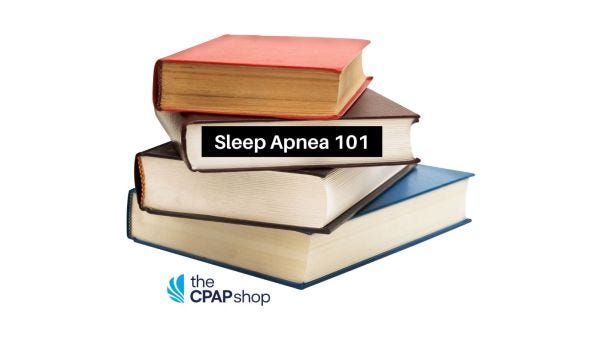Back to School – Sleep Apnea 101
The term apnea has its origins from the 17th century Latin word “apnoea” meaning breathless. Even after all these centuries, many people don’t have a full understanding of the meaning and the negative impact of sleep apnea on the quality of life.
Most people don’t realize they have sleep apnea and remain undiagnosed for many years, if not a lifetime. Many people rationalize sleep apnea by living with just always being tired. They assume it’s their way of life or job that is giving them the sense of constant tiredness. Many times it’s the bed partner who realizes something is wrong. Bed partners will wake up to a person who seems to be gasping for breath constantly throughout the night. Or the loud snoring becomes so irritating that the bed partner forces the issue and gets the person to a doctor.
Within the last 10 years, sleeping disorders are center stage and link various diseases including diabetes, high blood pressure, obesity, stroke, cancer, and even death from a heart attack. Of course, this does not take into account the thousands of deaths caused by sleep-related traffic accidents. Taken all together, sleep deprivation can be one of the leading causes of health-related illness and death. Getting a good night’s sleep is no longer a luxury. But, it plays a critical role in how we perform on many levels throughout the day and life.
The strange thing is that fixing the problem doesn’t require surgery or an overly invasive therapy. In general, CPAP therapy is the most effective and least invasive therapy for sleep apnea available. Although there are other treatments for sleep apnea such as surgery and oral devices, CPAP still is the most popular and best form of sleep therapy for sleep apnea. Certainly, getting comfortable with the equipment can be a struggle, at times. However, those problems can dissipate through proper CPAP machine selection, mask sizing, and knowledge and understanding of sleep apnea. Moreover, having support from family, friends, or a sleep practitioner makes a significant difference in continuing with treatment or stopping. Understanding that sleep apnea can be a life or death proposition also is a fairly decent motivator for most people.
If you are always feeling tired, a questionnaire will give you a starting point to determine if you are a candidate for sleep therapy. A few simple questions from the Epworth Sleepiness Scale such as how likely are you to doze off while reading, watching TV or stopped at a traffic light while driving can alert you to the need for further evaluation. Taking that first step can be the most difficult. But understanding that it can change your quality of life within a week is a strong motivator. CPAP is not perfect but it’s a life saver for the people who become compliant.
As the children go back to school, do yourself a favor and address that issue of tiredness. Not only will you feel better but your partner and family will also notice a dramatic difference in your attitude and behavior. You will feel refreshed and question why you didn’t look for a solution many years ago.




